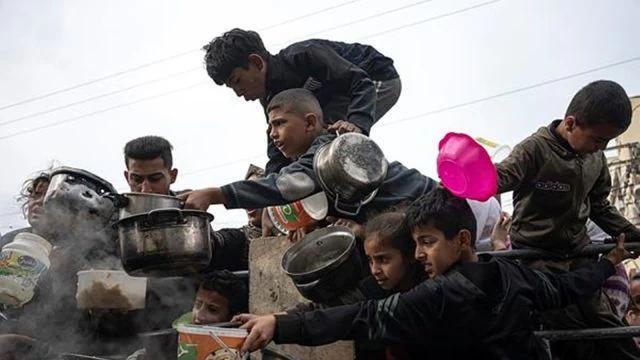
Israel Allows 100 Aid Trucks into Gaza Amid Fears of Baby Deaths
The situation in Gaza has been dire for weeks, with a near-total blockade imposed by Israel leaving millions of Palestinians in dire need of aid. The United Nations had warned that 14,000 babies in Gaza could die within 48 hours if more aid doesn’t enter the territory. In a move that has been hailed as a small step towards alleviating the crisis, Israel has agreed to allow about 100 more aid trucks into Gaza.
However, it’s not all good news. The supplies that entered earlier remain under Israeli control, leaving many to wonder what exactly is being allowed into the territory and what is being kept out. The humanitarian crisis in Gaza has been ongoing for years, with the latest escalation occurring in recent weeks.
According to the United Nations, the situation in Gaza is critical. The agency’s humanitarian chief, Tom Fletcher, had warned that the territory was facing a “catastrophic” situation, with a severe shortage of fuel, medicine, and other essential supplies. He had also warned that 14,000 babies in Gaza could die within 48 hours if more aid doesn’t enter the territory.
The blockade imposed by Israel has made it difficult for aid to reach Gaza, with many supplies stuck at the border. The situation has been exacerbated by the COVID-19 pandemic, which has further strained the already fragile healthcare system in Gaza.
The 100 aid trucks that have been allowed into Gaza are a welcome development, but many are concerned that it is not enough. The territory is home to over two million people, and the aid that is being allowed in is just a drop in the bucket. The World Health Organization (WHO) has warned that the healthcare system in Gaza is on the brink of collapse, with many hospitals and clinics running out of essential supplies.
The situation in Gaza is not just a humanitarian crisis, but also a political one. The blockade imposed by Israel has been widely criticized as a form of collective punishment, with many arguing that it is a violation of international law. The Palestinian Authority has also been critical of the blockade, with officials calling for it to be lifted.
The Israeli government has defended the blockade, citing security concerns. However, many have questioned the need for a blockade that has resulted in such a severe humanitarian crisis. The international community has also been critical of the blockade, with many countries calling for it to be lifted.
The situation in Gaza is a stark reminder of the need for international action to address the humanitarian crisis. The United Nations has been working to provide aid to those in need, but more needs to be done. The international community must come together to pressure Israel to lift the blockade and allow aid to reach those in need.
In the meantime, the people of Gaza are struggling to survive. The territory is home to many refugees who were forced to flee their homes during previous conflicts. They are now facing the prospect of a humanitarian crisis, with many struggling to access basic necessities like food, medicine, and shelter.
The situation in Gaza is a complex one, with many different factors contributing to the humanitarian crisis. However, one thing is clear: something must be done to address the crisis. The international community must come together to pressure Israel to lift the blockade and allow aid to reach those in need.



